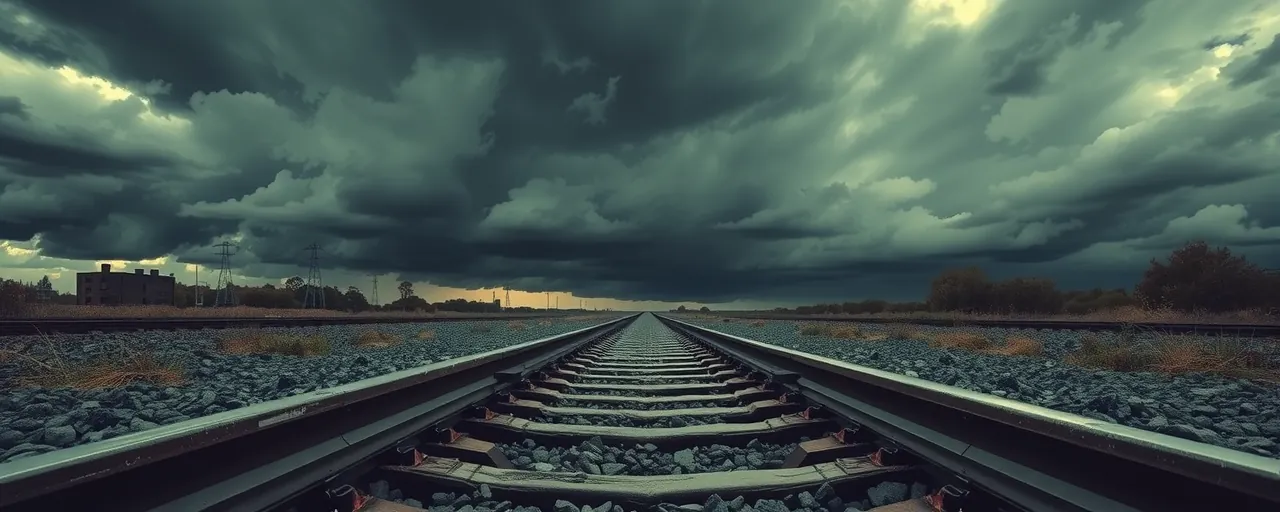A Vision Under Attack
California’s high-speed rail project promised a future where people travel between Los Angeles and San Francisco in under three hours, easing traffic and cutting pollution. Voters embraced this vision in 2008, approving bonds to fund a transformative bullet train. Now, President Trump’s administration has halted federal funding for the Los Angeles-to-San Francisco line. This decision, announced abruptly, threatens a project vital to the state’s economy, environment, and social equity. For those who value public investment in a sustainable future, this feels like a betrayal.
The project, already grappling with delays and rising costs, now faces an existential crisis. Over $13 billion has been spent, with the total price tag climbing past $100 billion. Trump’s refusal to provide federal support endangers not just the rail line but the broader idea that bold infrastructure can address pressing challenges like climate change. As someone passionate about building a fairer, greener America, I see this as a reckless step backward.
This fight extends beyond one rail line. It reflects a clash over the country’s priorities. High-speed rail offers a path to lower emissions, new jobs, and stronger communities. By rejecting it, the administration favors short-term savings over lasting progress. Democratic voters, with 82 percent backing rail as a climate priority, recognize its importance. This article argues why we must defend this project against political sabotage.
Republican lawmakers, who label the project a wasteful 'boondoggle,' point to its cost overruns and mismanagement. Their concerns about the budget aren’t baseless, but their solution, diverting funds to highways, misses the mark. Roads deepen our reliance on fossil fuels and widen inequality. Rail, despite its challenges, aligns with the urgent need for sustainable solutions. We need to confront these objections head-on and fight for the future.
Why Rail Matters
California’s bullet train is a critical tool for tackling climate change. Transportation generates nearly 40 percent of the state’s greenhouse gas emissions. A high-speed rail line, connecting major cities with clean, efficient travel, could significantly reduce that impact. Supporters of the 2021 Infrastructure Investment and Jobs Act, including Democratic lawmakers, understood this, securing $66 billion for passenger rail nationwide. Abandoning the project now undermines those efforts and our planet’s future.
The rail line also drives economic opportunity. Construction in the Central Valley, where 119 miles of track are taking shape, has created thousands of jobs. Finishing the project would generate tens of thousands more, particularly in underserved areas. Advocates for equitable development emphasize that infrastructure projects like this can close opportunity gaps, offering stable employment and better connectivity. Cutting funds puts those gains at risk and deepens economic divides.
GOP critics argue the project’s $128 billion price tag is unjustifiable, pushing for private funding instead. Yet private investors, cautious about long-term risks, have hesitated to commit. The state’s cap-and-trade program, contributing $32 billion, demonstrates public resolve, but federal support is essential to close the gap. The Republican preference for highways over rail ignores how roads fuel sprawl and emissions, perpetuating the problems rail seeks to address. Their stance prioritizes ideology over practicality.
A Legacy of Obstacles
High-speed rail has long faced resistance in America. The 1965 High Speed Ground Transportation Act sparked early efforts, but federal commitment has wavered. California’s project, launched with $9.95 billion in state bonds and $3.5 billion in 2009 federal grants, aimed to change that. Political divides, however, have consistently disrupted progress. The Trump administration’s 2019 attempt to reclaim nearly $1 billion in rail grants set the stage for today’s funding cut, revealing a pattern of opposition to projects that challenge conservative priorities.
Partisan gridlock has made infrastructure a battleground. Democratic leaders view rail as a tool for climate action and equity, while Republicans cast it as government overreach. This divide, growing since the 1990s, delays projects and drives up costs. The Infrastructure Investment and Jobs Act, a rare bipartisan achievement, offered hope, but Trump’s latest decision reverses that progress. It betrays the public’s call for modern, reliable infrastructure.
Republican arguments that rail is too costly fail to account for the $9.1 trillion infrastructure gap projected over the next decade by the American Society of Civil Engineers. Aging roads, bridges, and water systems demand investment, yet critics prioritize tax breaks over public needs. Rail, with its potential to reshape economies and cut emissions, deserves support, not scapegoating.
Fighting for the Future
The battle for California’s bullet train continues. The project’s new CEO, Ian Choudri, is seeking private investors to address the funding shortfall, but federal backing remains crucial. Advocates for climate action and equity must mobilize to demand the administration reconsider its stance. The Merced-to-Bakersfield segment, targeted for completion between 2030 and 2033, could demonstrate the project’s value, paving the way for the full line. We cannot let political games derail this vision.
This moment demands a broader commitment to infrastructure as a public good. Democratic lawmakers and voters, who prioritize rail as part of a sustainable future, must advocate for stable funding and innovative partnerships. The state’s cap-and-trade funds, while significant, need federal reinforcement. Polarization has already cost us crumbling bridges and outdated transit. We must act now to secure a connected, equitable, and livable future.
Trump’s funding cut is a setback, but the rail line represents more than steel and tracks. It embodies a commitment to progress, fairness, and environmental stewardship. We owe it to ourselves and future generations to keep this project alive and build the America we envision.
